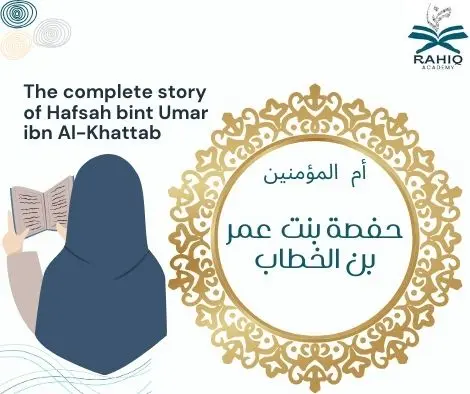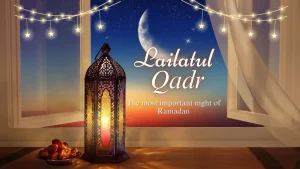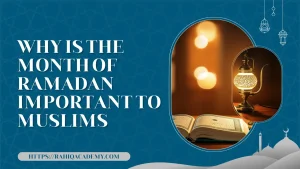Hafsah bint Umar ibn Al-Khattab (RA) occupies a distinguished place in Islamic history. As the daughter of Umar ibn Al-Khattab (RA), Islam’s second caliph, and one of the wives of Prophet Muhammad (PBUH), her life was deeply woven into the fabric of early Islam. Her significant contributions to preserving the Qur’an and narrating Hadith demonstrate her devotion, courage, and intellectual commitment. This article highlights her personality, her role in the Muslim community, her marriage, narrations of Hadith, and key moments of her life.
Hafsah bint Umar Personality
Hafsa (RA) inherited her strength and resolve from her father, Umar (RA), renowned for his steadfastness in faith and justice. She embraced the message of Islam wholeheartedly and devoted herself to memorizing the Qur’an, which later earned her the responsibility of safeguarding its initial written compilation. Hafsa’s life reflects the following verse of the Qur’an, exemplifying her dedication to righteousness:
إِنَّ ٱلْمُسْلِمِينَ وَٱلْمُسْلِمَٰتِ وَٱلْمُؤْمِنِينَ وَٱلْمُؤْمِنَٰتِ وَٱلْقَٰنِتِينَ وَٱلْقَٰنِتَٰتِ وَٱلصَّٰدِقِينَ وَٱلصَّٰدِقَٰتِ وَٱلصَّٰبِرِينَ وَٱلصَّٰبِرَٰتِ وَٱلْخَٰشِعِينَ وَٱلْخَٰشِعَٰتِ وَٱلْمُتَصَدِّقِينَ وَٱلْمُتَصَدِّقَٰتِ وَٱلصَّآئِمِينَ وَٱلصَّآئِمَٰتِ وَٱلْحَٰفِظِينَ فُرُوجَهُمْ وَٱلْحَٰفِظَٰتِ وَٱلذَّٰكِرِينَ ٱللَّهَ كَثِيرًۭا وَٱلذَّٰكِرَٰتِ أَعَدَّ ٱللَّهُ لَهُم مَّغْفِرَةًۭ وَأَجْرًا عَظِيمًۭا
“Indeed, the Muslim men and Muslim women, the believing men and believing women, the obedient men and obedient women, the truthful men and truthful women, the patient men and patient women, the humble men and humble women, the charitable men and charitable women, the fasting men and fasting women, the men who guard their private parts and the women who do so, and the men who remember Allah often and the women who do so – for them Allah has prepared forgiveness and a great reward.”
Hafsah bint Umar Personality was formed at environment of faith and power of justice
Hafsah bint Umar Role in Islam
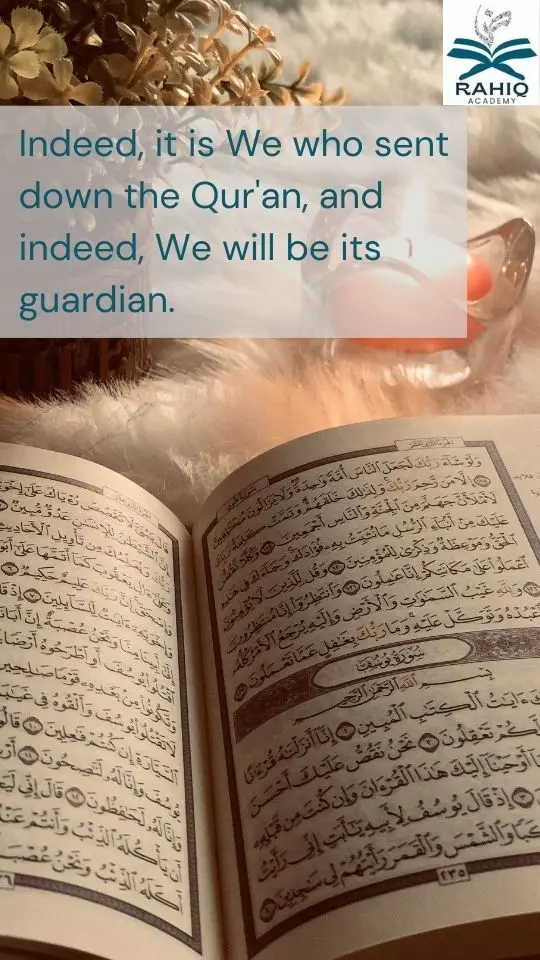
Hafsah bint Umar Role in Isalm was a crucial role in preserving the Qur’an. Following the Prophet’s passing, Caliph Abu Bakr (RA) directed that the Qur’an be compiled from various writings and memorized verses. Once complete, this compilation was entrusted to Hafsa for safekeeping.
During Caliph Uthman’s (RA) rule, her manuscript was used as the primary source for producing a unified, standardized version of the Qur’an. Her role as the custodian of the Qur’an emphasizes her steadfast dedication to Allah’s words, fulfilling the divine promise:
إِنَّا نَحْنُ نَزَّلْنَا ٱلذِّكْرَ وَإِنَّا لَهُۥ لَحَـٰفِظُونَ
“Indeed, it is We who sent down the Qur’an, and indeed, We will be its guardian.”
(Surah Al-Hijr, 15:9)
Hafsah bint Umar ibn Al-Khattab Marriage
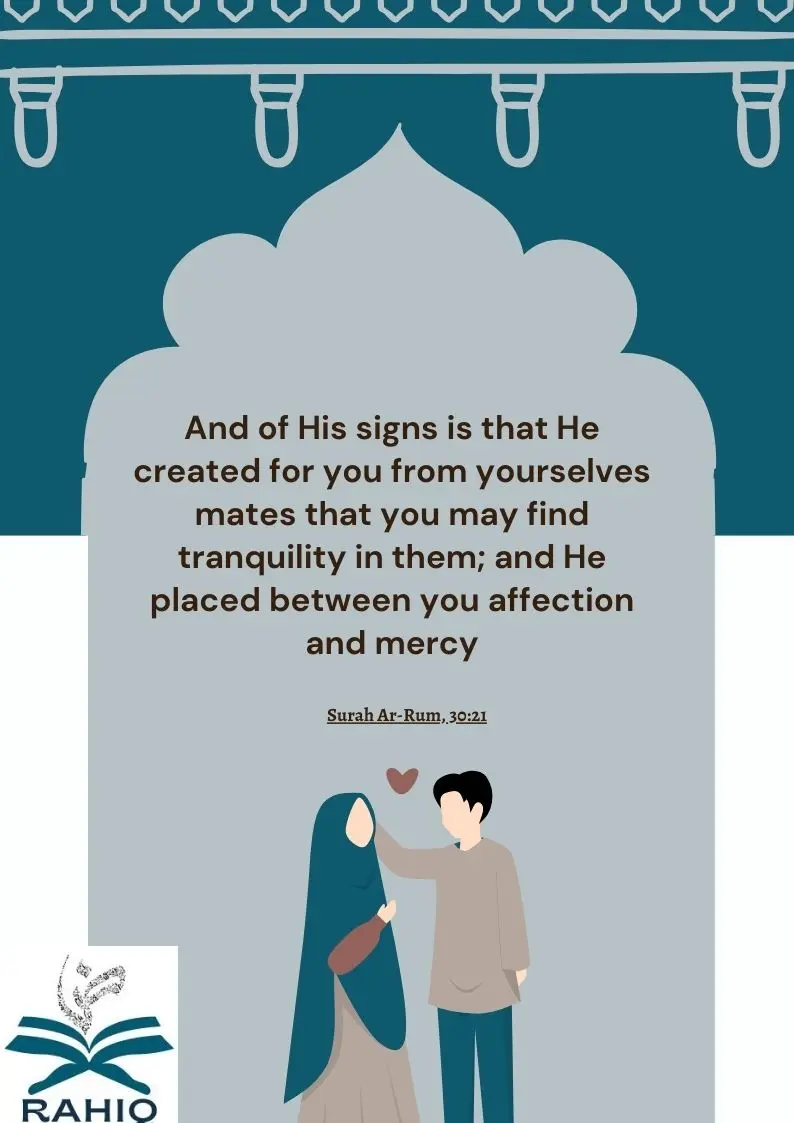
After her first husband, Khunais ibn Hudhafah, died from injuries sustained in battle, Hafsa married the Prophet Muhammad (PBUH). This union further strengthened the ties between the Prophet and her father, Umar (RA). As one of the Mothers of the Believers, Hafsa had a unique opportunity to observe and learn directly from the Prophet, gaining knowledge that she later passed down to the Muslim community. Her marriage also reflects Allah’s purpose for companionship:
وَمِنْ ءَايَٰتِهِۦٓ أَنْ خَلَقَ لَكُم مِّنْ أَنفُسِكُمْ أَزْوَٰجًۭا لِّتَسْكُنُوٓا۟ إِلَيْهَا وَجَعَلَ بَيْنَكُم مَّوَدَّةًۭ وَرَحْمَةً
“And of His signs is that He created for you from yourselves mates that you may find tranquility in them; and He placed between you affection and mercy”
(Surah Ar-Rum, 30:21)
Hafsah bint Umar Hadith
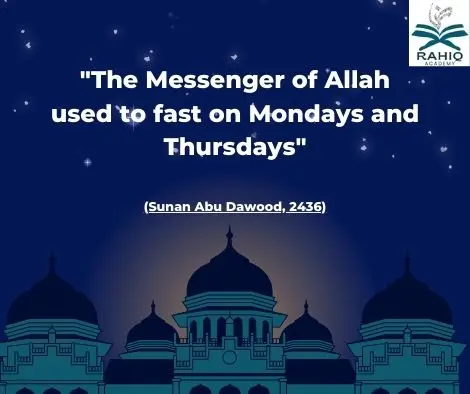
Hafsa (RA) contributed to the preservation of the Prophet’s teachings by narrating several hadiths that cover significant aspects of Islamic practice, particularly in worship and spirituality. One of her narrations emphasizes the Prophet’s habit of fasting on specific days, underscoring the importance of regular worship:
Hadith
“The Messenger of Allah used to fast on Mondays and Thursdays”
(Sunan Abu Dawood, 2436)
Her narrations are a valuable resource for Muslims seeking to align their practices with those of the Prophet Muhammad (PBUH).
Hafsah bint Umar Divorce
At one point, the Prophet (PBUH) considered divorcing Hafsa due to a personal disagreement. However, Angel Jibreel conveyed a message from Allah, advising the Prophet to reconcile with her, praising her devotion to prayer and fasting.
This incident highlights the value of forgiveness, patience, and mutual respect in marriage. Through her steadfastness, Hafsa exemplified the Qur’anic call to seek help through patience:
يَٰٓأَيُّهَا ٱلَّذِينَ ءَامَنُوا۟ ٱسْتَعِينُوا۟ بِٱلصَّبْرِ وَٱلصَّلَوٰةِ إِنَّ ٱللَّهَ مَعَ ٱلصَّٰبِرِينَ
“O you who have believed, seek help through patience and prayer. Indeed, Allah is with the patient.”
(Surah Al-Baqarah, 2:153)
Conclusion
Hafsa bint Umar (RA) was a figure of immense resilience, dedication, and knowledge. Her role in preserving the Qur’an, narrating hadith, and her dedication to the Prophet Muhammad’s (PBUH) mission have left a lasting legacy. Her story inspires Muslims to embrace their faith with sincerity and strive for knowledge and spiritual growth.
At RAHIQ Academy, you can further explore the lives of influential figures like Hafsa (RA) and gain deeper insights into the Seerah of the Prophet (PBUH). Our comprehensive courses offer a path to understanding Islamic history and values.
Enroll now at RAHIQ Academy and learn how to strengthen your connection with Allah through the timeless teachings of Islam.

